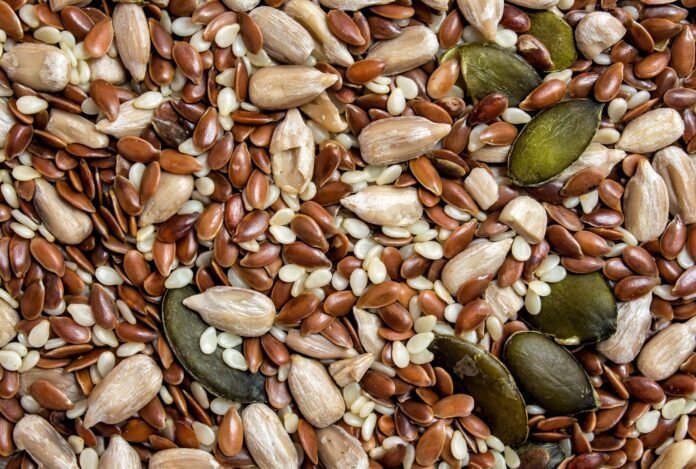Seeds: Tiny Powerhouses of Nutrition
Pumpkin, sunflower, flax, and chia seeds are nutrient-dense foods rich in fiber and protein, offering various health benefits. While nuts often dominate healthy snacking, seeds such as pumpkin, sunflower, and even watermelon are equally satisfying and nutrient-packed. Other seeds, like chia, flax, and sesame, are perfect for enhancing dishes while supporting heart health, digestion, and immunity, and keeping you fuller longer. Here’s a closer look at eight of the best seeds to snack on and how to incorporate them into your diet.
Pumpkin Seeds
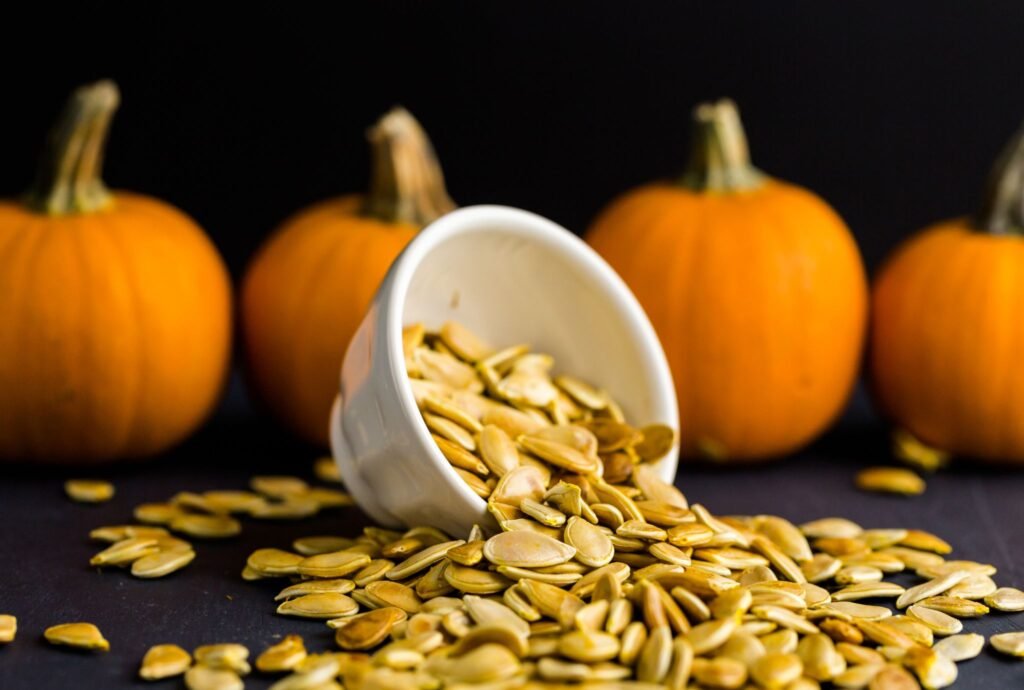
If you’re carving pumpkins, don’t toss the seeds! Just 1 ounce (2–3 tablespoons) provides over 35% of your daily magnesium needs and 8.5 grams of protein. Magnesium helps reduce heart disease risk, regulate blood pressure, and strengthen bones. Pumpkin seeds are also high in tryptophan, an amino acid that boosts serotonin (for mood) and melatonin (for sleep).
How to Enjoy: Eat them raw or roasted (with or without the shell) for a fiber-rich snack. Add to trail mix, granola, muffins, salads, grain bowls, or soups for crunch and protein.
Pine Nuts
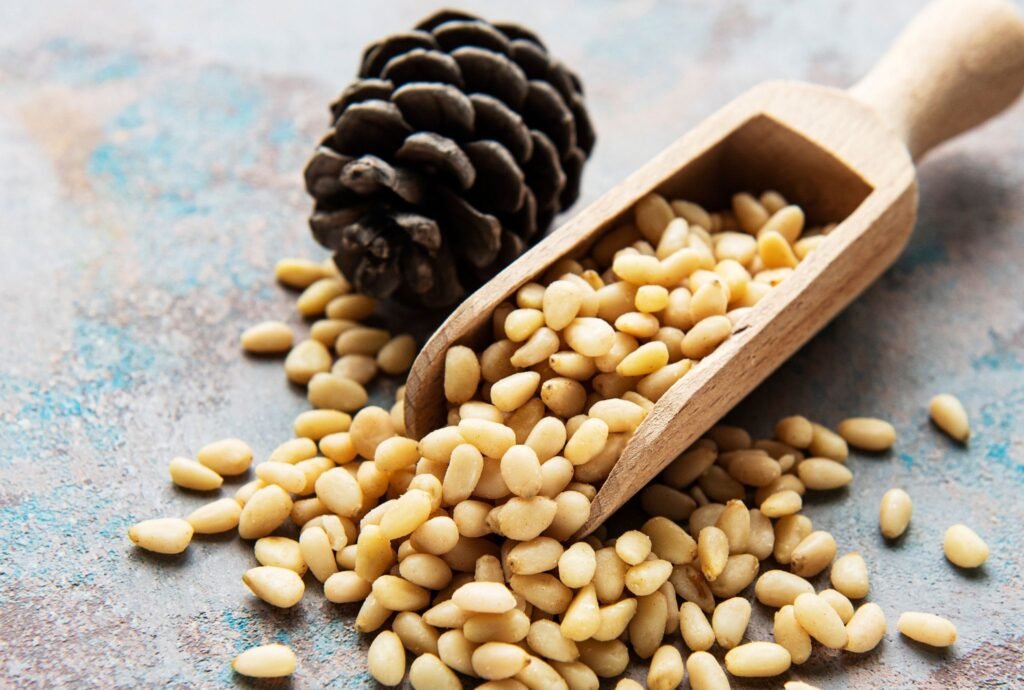
Technically seeds, pine nuts provide 4.5 grams of protein per ounce, along with magnesium, zinc, and phosphorus. Rich in healthy fats like pinolenic acid, they may help reduce inflammation, blood pressure, and cholesterol.
How to Enjoy: Snack on pine nuts, sprinkle them on roasted veggies or salads, or add to pasta. For something sweet, try traditional Italian pignoli cookies made with almond paste and coated in pine nuts.
Sunflower Seeds
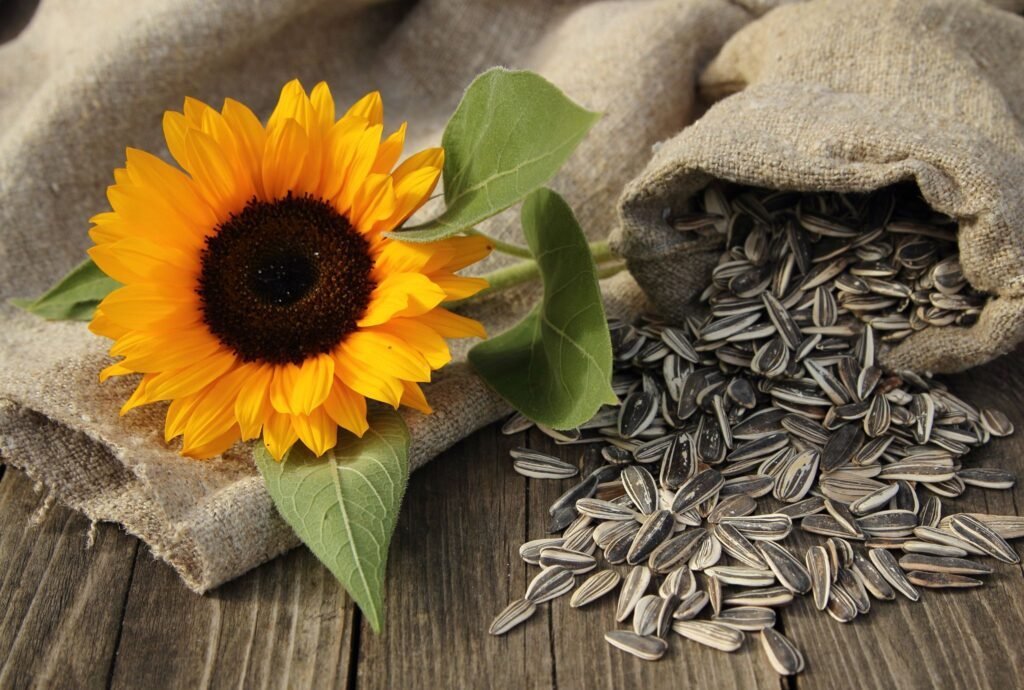
Packed with antioxidants, sunflower seeds deliver 10 milligrams of vitamin E per ounce (two-thirds of your daily requirement), which may reduce heart disease risk. They also contain protein, fiber, and healthy fats like CLA and oleic acid, known for their heart-healthy and anti-inflammatory properties.
How to Enjoy: Remove the shell and add sunflower seeds to yogurt, cereal, or pesto as a nut-free alternative. Sunflower seed butter is another delicious, allergen-friendly option.
Watermelon Seeds
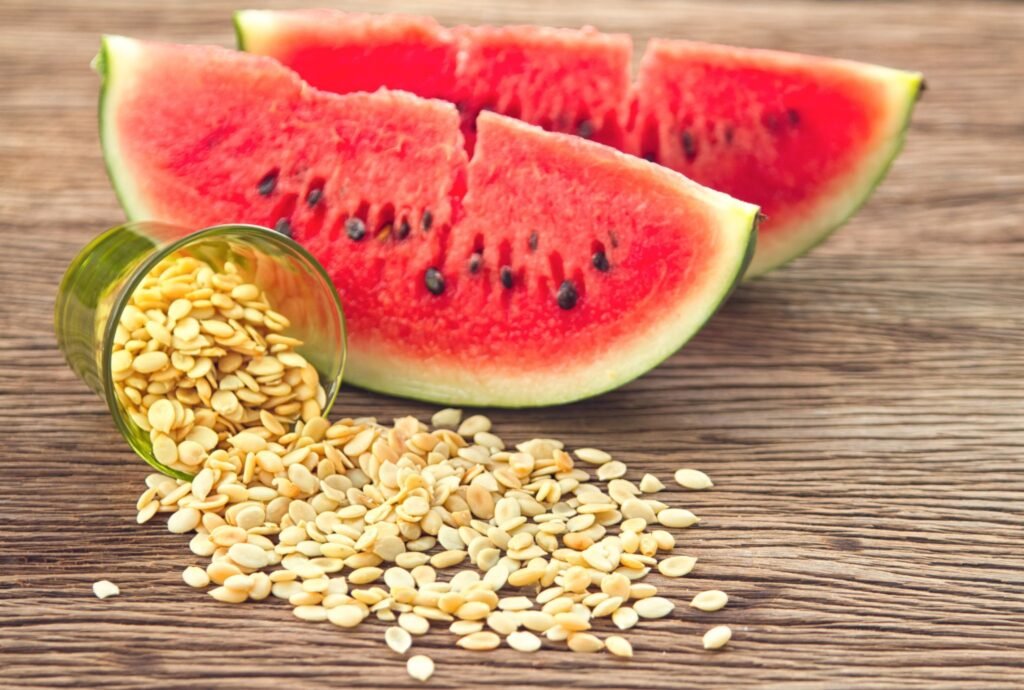
Often overlooked, watermelon seeds are a hidden nutritional gem. One ounce of dried seeds contains 8 grams of protein and minerals like zinc, magnesium, and iron. Zinc supports a strong immune system and may help shorten colds.
How to Enjoy: Roast black or white watermelon seeds for a crunchy snack or use them as a garnish for salads, stews, and soups.
Hemp Seeds
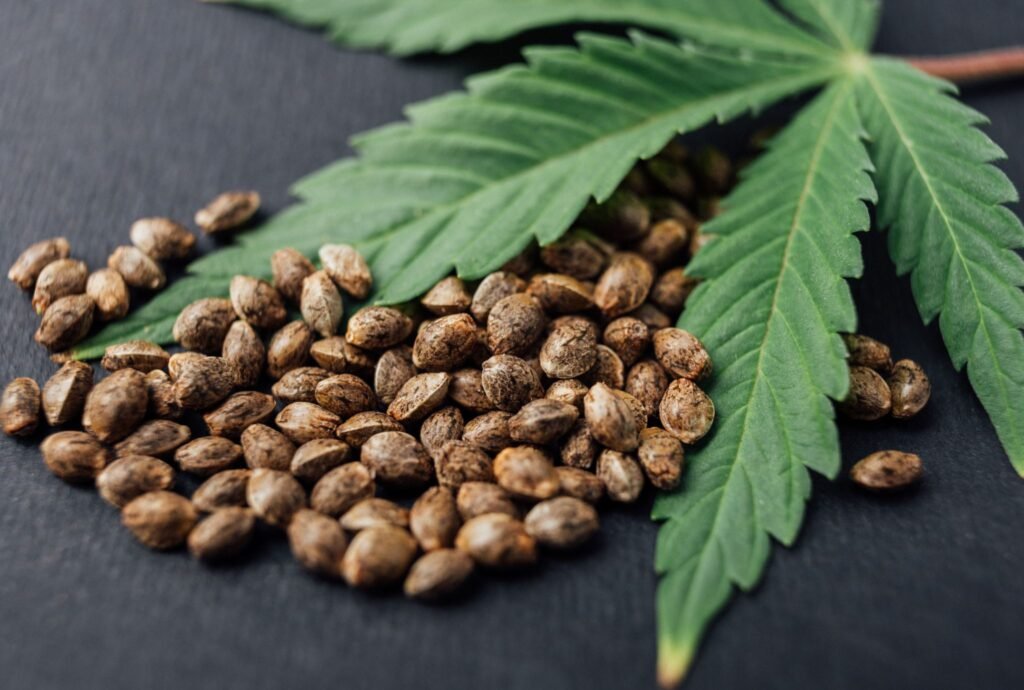
Hemp seeds (or hemp hearts) are a complete protein source with 9.5 grams of protein per ounce and all nine essential amino acids. They also offer potassium, zinc, iron, and a balanced ratio of omega-6 to omega-3 fatty acids for heart health and reduced inflammation.
How to Enjoy: With their mild flavor, hemp seeds are versatile—add to smoothies, oatmeal, sandwiches, or pancake batter, or sprinkle them over salads and grains.
Flaxseeds
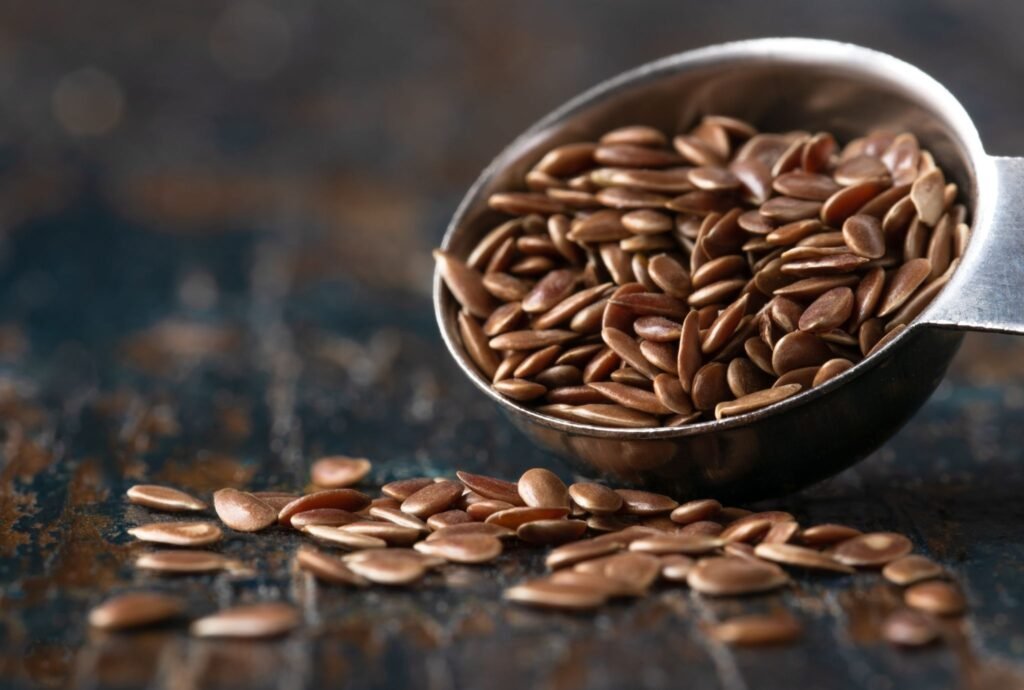
Known for their high ALA (a plant-based omega-3 fatty acid) content, flaxseeds may lower blood pressure and cholesterol, support digestion, and help manage blood sugar. One ounce offers 5.2 grams of protein and 7.8 grams of fiber.
How to Enjoy: Grind flaxseeds for better nutrient absorption, and mix them into smoothies, oatmeal, breads, or sauces for a nutty flavor boost.
Chia Seeds
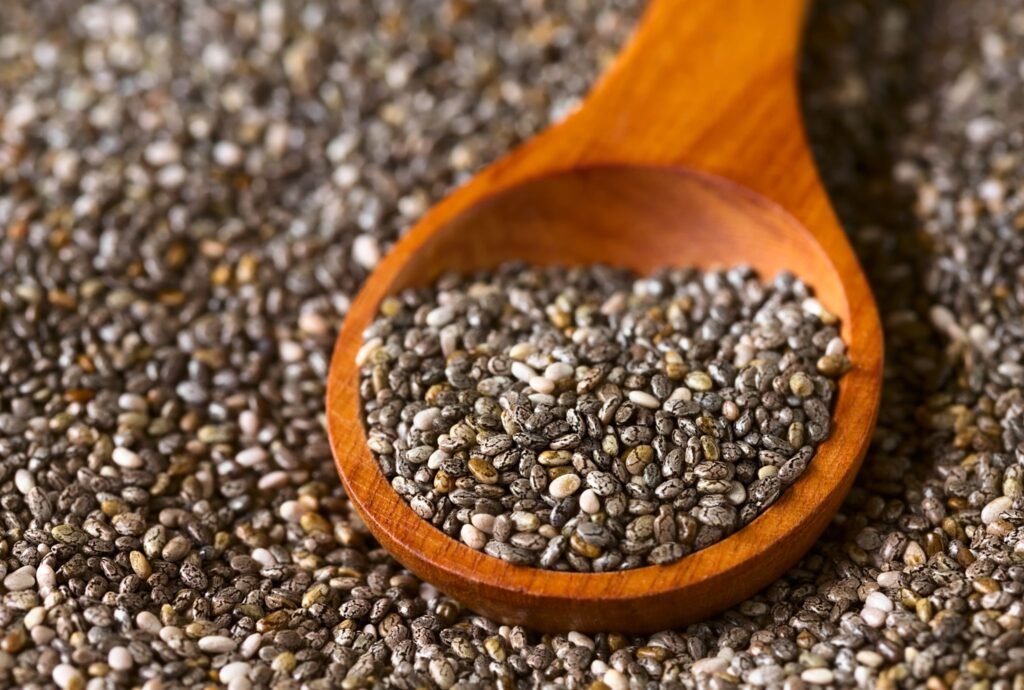
Chia seeds are a fiber powerhouse, with 9.8 grams per ounce, supporting digestion, blood sugar control, and heart health. They’re also a complete protein source, rich in ALA and antioxidants.
How to Enjoy: Make chia pudding, sprinkle them over yogurt or cereal, or add them to smoothies. Chia seeds also gel when soaked in liquid, making them great for thickening recipes.
Sesame Seeds
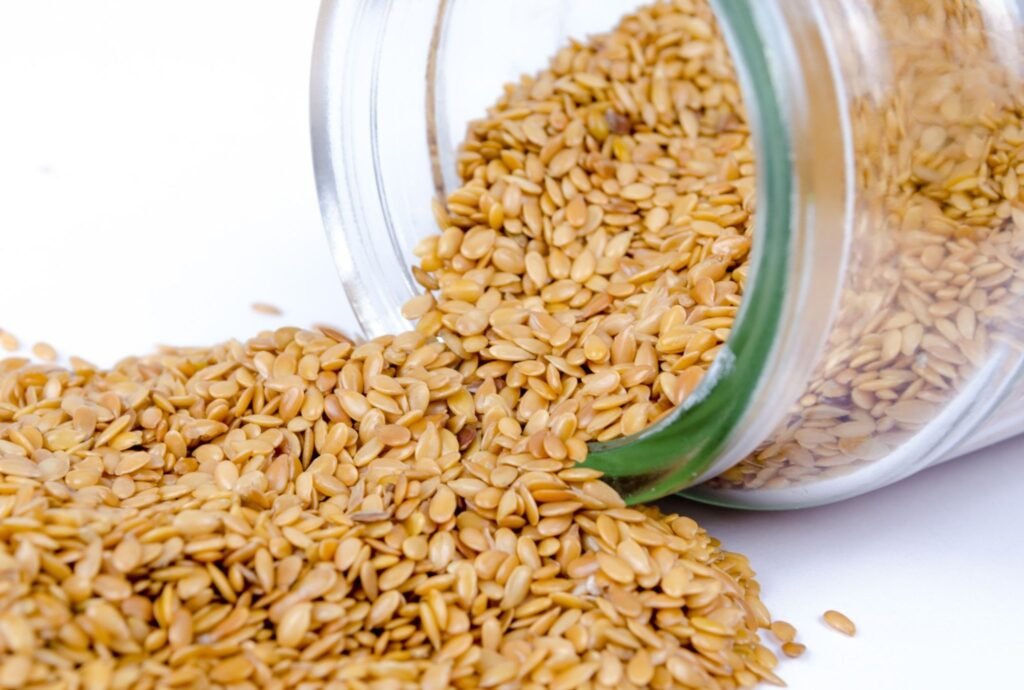
Small but mighty, sesame seeds contain nearly 5 grams of protein and 3 grams of fiber per ounce. They’re also rich in sesamin, a lignan with antioxidant, anti-inflammatory, and cholesterol-lowering properties.
How to Enjoy: Add black or white sesame seeds to grain bowls, seafood dishes, baked goods, or use sesame paste (tahini) in dips, dressings, or drizzles over vegetables.
Why Include Seeds in Your Diet?
Seeds are simple yet powerful sources of protein, fiber, healthy fats, and essential nutrients. Whether sprinkled on dishes, blended into smoothies, or enjoyed on their own, these nutritional powerhouses can enhance your diet and support your health in countless ways. Next time you’re craving a snack, reach for some seeds—they’re small, but their benefits are mighty!



